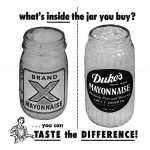Four Workplace Stereotypes Millennials (Like Me) Thoroughly Resent
Millennials hear a lot about their personality traits from other people. At least that’s how it often feels to this millennial (whose job involves getting pitched many drafts of articles on that subject every week) but also to plenty of others in my generation.
The whole idea of generational cohorts, after all, is tenuous from a sociological point of view and worthless from a practical one. If you’re trying to understand what a given employee wants or why she’s acting a certain way, you can’t expect characteristics that supposedly apply to everybody born within a 15- to 22–year time span to be all that precise.
1. We Can’t Take Criticism
Millennials are commonly thought to be so self-absorbed that we can’t take constructive feedback, lest it bruise our fragile egos. Nathan Chaffetz, 30, says that a supervisor in a job he held as recently as last year “softened feedback to a degree that made it harder for me to understand what they wanted.” Chaffetz wasn’t new to the workforce and just learning the ropes at the time–he was his office’s general manager.
Now director of business development at the talent-acquisition platform Perfect Loop, Chaffetz says, “One thing I like about my new gig is that we’re really trying to get people jobs by breaking down these categorical cognitive biases.” The company tries to look past traditional job titles and experience levels to fit people into roles that match their skills and personalities, a mission Chaffetz personally connects with.
In his previous position, he says, “I was the only GM who didn’t have an MBA or came from a big-four consulting firm and I was treated like a child sometimes,” getting asked condescending questions like, “Have you ever fired anyone?”
2. We’re Faking Adulthood
When I took to Slack to ask my fellow Fast Company millennials which preconceptions get under their skin, Co.Design writer Diana Budds shot back, “anything and everything about ‘adulting’ being a problem—we have our  together.”
together.”
The term started popping up three or four years ago, as a jokey way for twentysomethings to describe pulling off mundane tasks like paying rent on time. Then it was coopted by our elders as evidence that we thought we deserved special recognition simply for behaving like grownups. But the whole point of using a neologism like “adulting” was to laugh off that very expectation.
3. We’re Hopeless Narcissists
Millennials are often mocked for obsessively “curating” their online personas, to such an extent that it takes over their real-life identities. One of the most memorable episodes in HBO’s recent season of High Maintenance featured a fictional NYU student who concluded a day spent taking whimsical selfies by sobbing alone in her bed after botching the only face-to-face conversation she’d had that day.
But as my colleague Kelsey Campbell-Dollaghan, Co.Design’s deputy editor, points out, “desperation for social media attention is age-agnostic.” It’s not hard to think of certain septuagenarians who tweet just as prolifically and self-centeredly as any millennial.
4. We’re Lazy, Entitled, And Overly Sensitive
“The lazy/entitled thing kills me,” says one 28-year-old head of product at a tech startup who asked to remain anonymous. “My parents are frequently the ones telling me to stop working so much, not the other way around.” (For the record, my own have offered standing invitations to me and most of my friends to use their New Jersey home as a weekend retreat to rest up after especially hectic workweeks in New York.)
She also reports experiencing “a kind of new-to-me sexism where when I’m stressed–but feel capable of handling everything–I’m deemed ‘frazzled,’ so a boss gives me a hug and asks if I’m okay or tells me how tired I look.” In other words, the millennial stereotype becomes a Trojan horse for gender stereotypes (and even sexual harassment) that women have faced ever since they’ve worked alongside men. “When a man my age is stressed,” the product head continues, “he’s ‘got too much on his plate’ but is doing a great job considering how busy he is,” an attitude she (perhaps too generously) calls “something like ‘well-intentioned’ sexism, although that’s probably simplifying it.”
“The ‘we’re too sensitive’ thing,” as Desiree Brown puts it, can also cut the other way, by glossing over genuine personal issues that have nothing to do with someone’s age or demographic. “If earlier generations had had a greater understanding of and respect for mental health,” says the 29-year-old fashion copywriter, “they would have more compassion for those of us who struggle with mental health issues or prioritize our well-being.”
Fortunately, not all non-millennials are so quick to caricature their younger colleagues. Allen Yee, creative partner at the digital design studio Cloudred, who’s 42, reflects that when he and his fellow Gen-Xers were in their twenties, “we could go travel the world for a year and come back with a reasonable expectation of finding work.” For the millennials who entered a tighter workforce with more student-loan debt than their predecessors, says Yee, “that reality doesn’t exist anymore.”
If personal experience can confirm stereotypes, it can also subvert them. Adds Yee, “I just don’t see the lazy and entitled stereotype at all with millennials.” This one is grateful for that.
Fast Company , Read Full Story
(70)














